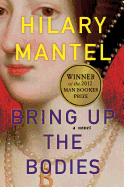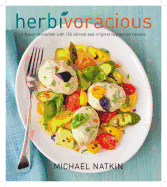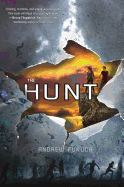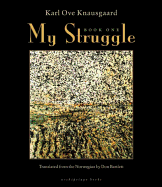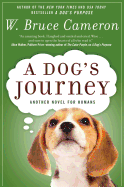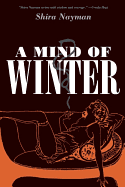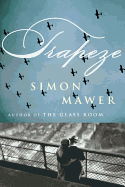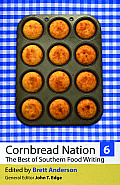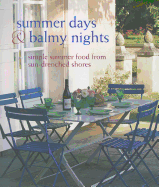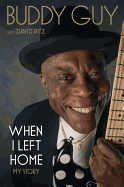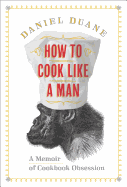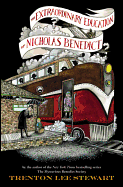Tuesday, May 15, 2012
In today's issue, we have an interview with the estimable Buddy Guy, along with a review of his memoir, When I Left Home. We spoke with David Ritz, author of 20 "collaborative autobiographies," who worked with Buddy Guy on his book, to find out how he does it.
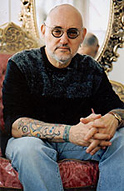 Ritz said, "It's a mystical process: it helps to love the person or love their artistry in order to capture them in a way that retains their musicality." And how could he not love Buddy Guy? "He's a complete joy. He let me do what I do, and when that happens, I really have a good time. He trusted me." Ritz enjoyed writing about Guy's music and his place in the musical pantheon: "Buddy Guy is very conservative in a sense--he loves and admires his elders, his musical elders. But for all of that, he was sort of an avant-gardeist. He paved the way for Jimi Hendrix, Jimmy Page."
Ritz said, "It's a mystical process: it helps to love the person or love their artistry in order to capture them in a way that retains their musicality." And how could he not love Buddy Guy? "He's a complete joy. He let me do what I do, and when that happens, I really have a good time. He trusted me." Ritz enjoyed writing about Guy's music and his place in the musical pantheon: "Buddy Guy is very conservative in a sense--he loves and admires his elders, his musical elders. But for all of that, he was sort of an avant-gardeist. He paved the way for Jimi Hendrix, Jimmy Page."
Typically, Ritz does two to three months' of interviews before he writes. "Buddy is very country in a good way--he's used to working, to being on time." After the interviewing comes the difficult part: "Sometimes I struggle for months to get a voice right. Transcribing an interview doesn't work well because what the eye processes is different than what the ear hears. It helps to know the musical voice well. You can begin to hear the music in the voice.
"Buddy made very few changes; I think I nailed it with the first draft. Because he wears his heart on his sleeve, I didn't have to drag anything out of him. He knows who he is and is happy with who he is. I see myself as a surrogate so the reader can be where I am, to have that kind of intimacy.
"It really is a labor of love, and it's a privilege to do what I do." --Marilyn Dahl, reviews editor, Shelf Awareness
My Struggle: Book One
by Karl Ove Knausgaard, transl. by Don Bartlett
It's a lucky reader who gets buried alive in the literary avalanche of Karl Ove Knausgaard's My Struggle--a freewheeling, funny, smart, provocative chunk of narrative that just keeps on coming, a flashback-laced plunge into one man's life.
At the book's center is Knausgaard himself, telling his own story in a montage of memories, first as a 16-year-old with illegally obtained beer on New Year's Eve, then, in Part Two, as an adult accompanying his brother to remove a houseful of his father's bottles and alcoholic debris to prepare for his father's funeral.
Bravely dog-paddling into this river of language, the reader encounters dozens of characters from Knausgaard's life: his bungling, domineering father, his aloof but devoted brother, his elusive mother, both of his wives, his best friends, his first crushes, his uncles and aunts and cousins and--most of all--his incontinent, repetitive, alcoholic Grandma, once torn between her love for two brothers, now consumed by her clinging son. Looping backward and forward in time, through the angst of adolescence, the exhaustion of childrearing, the flickering changes in his parents as they grow apart and decide upon a divorce, Knausgaard records hyperrealistic impressions with scalpel precision.
That My Struggle is so often warm and funny belies all the stereotypes of bleak, humorless Scandinavian writing. Knausgaard builds emotional momentum out of the ordinary, making a profoundly moving climactic sequence out of cleaning an obscenely dirty house, or out of a mother and her two sons drinking in the evening, reliving their memories. --Nick DiMartino, Nick's Picks, University Book Store, Seattle
Discover: The first of a six-volume Norwegian epic laying out the author's life in hyper-realistic detail through a flashback-laced narrative piled thick with memories, laughter and anguish.
Bring Up the Bodies
by Hilary Mantel
Tudor England during the reign of Henry VIII is a place readers have visited many times--but in the hands of Hilary Mantel, it becomes territory both new and unsettling. In Bring Up the Bodies, the sequel to the Booker Prize-winning Wolf Hall, Mantel weaves a richly textured world that is at once deeply foreign and entirely relevant, coalescing around the single thing that over centuries remains unchanged: the driving passions of people, even those who are kings. Through the eyes of Thomas Cromwell, a man of formidable intellect, the psychological and political complexities of the court are unraveled for inspection. And as ever, Mantel's virtuoso use of language is compelling.
Erotic desire and violent death are a constant, powerful undercurrent. In Wolf Hall, the king was driven by his desire for Anne to upend the churches of England; in Bring Up the Bodies, the whispers at court subtly insinuate sexual possibilities as everyone is preoccupied with Anne's body: watching for signs of pregnancy, listening for signs of adultery. In such a world--where sexuality is pervasive but seldom seen and death threatens even the most powerful--truth becomes inextricably entangled with imagination, and Cromwell fashions a reality in which Anne's adultery is suddenly plausible.
Here the downfall of Anne Boleyn is remade into a chilling suspense story. Thomas Cromwell orchestrates events that lead to Anne's death because otherwise, chances are good that she will do the same to him. --Ilana Teitelbaum, book reviewer at the Huffington Post
Read more about Bring Up the Bodies and Hilary Mantel in our Maximum Shelf.
Discover: The sequel to the Booker Prize-winning Wolf Hall wherein Hilary Mantel creates a suspenseful, unsettling story from the familiar one of Anne Boleyn’s downfall and Cromwell’s machinations.
A Dog’s Journey
by W. Bruce Cameron
It's not necessary to circle your reading chair three times before settling in with A Dog's Journey, Bruce Cameron's sequel to his bestselling A Dog's Purpose, but it would be appropriate. It's also not necessary to have read the first book; anyone who appreciates the pet-human relationship will easily embrace Cameron's premise that a dog's spirit is reincarnated over multiple lives. After several run-throughs, Buddy found his life's purpose: watching over Ethan. As A Dog's Journey begins, Ethan has died, and Buddy is at the lake, on the dock with baby Clarity, Ethan's granddaughter.
Buddy's personality remains consistent, even when he returns as Molly, Max and Toby, taking readers to the precipice of grief as each dog ages. It's the human relationships that are unpredictable. (Some people don't even like dogs!) But Clarity recognizes the love each dog brings to her, although Cameron never resorts to a "deja vu" conceit to explain why she connects with them. Nor does the plot become sappy. Clarity has a tough life, and her dogs offer comfort while narrating her angst. She flees her self-centered mother as a teen; it takes many years and four dog lives for Clarity to find peace. Told in straightforward prose, A Dog's Journey an adult novel, but is appropriate for readers age 12 and up, and is likely to join novels like The Art of Racing in the Rain on the bookshelves of literary dog lovers. --Cheryl Krocker McKeon, bookseller
Discover: The sequel to A Dog’s Purpose reintroduces an uncommon canine trying to make sense of his life.
A Mind of Winter
by Shira Nayman
The unusual love story of Shira Nayman's A Mind of Winter shows us a sophisticated view of romantic love's inherent smallness in the shadow of war. Featuring unforgettable characters in varying states of decline and debasement, the novel depicts a level of human damage caused by the smoldering ruin of Europe after the Second World War for which not even the most ostentatiously pastoral revelry of postwar-America could provide respite.
Working back and forth in time and spanning continents, Nayman gradually builds a story of two lovers, Christine and Robert, split for mysterious (yet obviously scarring) reasons during the Blitz. Christine turns up later in Shanghai on a vividly drawn self-destructive tear involving opium dens and brothels. Meanwhile, wealthy Oscar holds court at his estate in the Hamptons with a collection of interesting, semi-permanent party guests. One of his guests, Marilyn, a war photographer who adores her husband, is unmoored by the memories of what she saw through her camera and recklessly embarks on an ill-fated affair with the world-weary Barnaby. Finding a kindred soul in his guest's disaffectedness, the ostensibly British Oscar befriends Marilyn--and we learn what has become of Christine and Robert.
Nayman's pacing is tantalizingly opaque; where the story and its entrancing characters are going is never quite clear until the end. That end brings a satisfying closure, but the sensation of how these characters are hounded by the echo of war is distinctly unsettling. --Cherie Ann Parker, freelance journalist and book critic
Discover: A vivid, sophisticated romance unfolding--in a complicated narrative structure--after the wreckage of the Second World War.
Trapeze
by Simon Mawer
Simon Mawer's novels often tread loosely down the genre path of historical fiction, and Trapeze is no exception. It's the story of Marian Sutro, a woman recruited by the British Special Operations Executive to be an agent in occupied France near the end of the Second World War. Sutro is based on the real-life Anne-Marie Walters, whose 1946 memoir, Moondrop to Gascony, chronicled the special role female spies played in the war. With a storytelling flair, Mawer recreates the tension and loneliness of a woman driven by duty and pride into a life where "your cover story would become more real than your true story. The lies would become truths, and truth lies."
The young Sutro is ostensibly recruited because of her native French-speaking skills and mastery of a covert agent's toolbox of Morse code, parachuting, weapons, memorization and endurance. However, it is her childhood friendship with a French scientist that elevates a good spy story into one with overtones of morality and game-changing technology. Before the war, Clément Pelletier did research in France with Niels Bohr and others on an atomic bomb. The British desperately want to extract him from Paris to finalize a working prototype before Hitler does. Clément and Marian had a youthful crush, and her feelings still linger despite the intervening time and war. That romance will determine the success of her real mission--to convince him to leave and bring the war to a rapid close. Mawer's crisp prose, erudite science and subtle bilingual details raise Trapeze above the genre riff-raff. –-Bruce Jacobs, founding partner, Watermark Books & Cafe, Wichita, Kan.
Discover: A fact-based story of a female British agent working with the French Resistance to end World War II.
Food & Wine
Cornbread Nation 6: The Best of Southern Food Writing
by Brett Anderson, editor
Reading is a pleasure that most of us wish we could do more often, if only time and energy would allow it. Reading about food is an even more exquisite treat for some; if the focus happens to be Southern food, well, that's simply icing on the cake. Luckily, for those who appreciate all that the world of Southern food entails, there's Cornbread Nation.
Cornbread Nation 6: The Best of Southern Food Writing is edited by Brett Anderson, a restaurant critic and features writer at the New Orleans Times-Picayune, and he has created a compilation that will literally make the reader salivate. Divided into six categories, with such titles as Menu Items and Southern Characters, the book features an eclectic mix of essays, brief memoirs, poetry and profiles. Savvy readers will recognize contributors like Molly O'Neill, Michael Pollan, Calvin Trillin and Kim Severson--and savor the discovery of new voices, as well as the ability to revisit the words of the past (including notes by Frederick Douglass on the sustenance of slaves). Southern food is influenced by a combination of diversity, history, location and tradition; Cornbread Nation 6 delves into each of these inspirations, but also allows a glimpse of the innovation shaping Southern cuisine and food culture today. --Roni K. Devlin, owner of Literary Life Bookstore & More
Discover: A new volume in a popular series about the distinct and influential food culture of the American South.
Herbivoracious
by Michael Natkin
In Herbivoracious, Michael Natkin offers "a collection of vegetarian recipes that are so full of flavor, so pleasurable to make and to eat, and so satisfying that, if you are an omnivore, you won't give a second thought to the fact that they contain no meat." Natkin first became interested in vegetarian food at the age of 18, when his mother, battling cancer, decided to try a macrobiotic diet. This sparked an enduring passion for food that led to an award-winning vegetarian blog, from which Herbivoracious has emerged.
Vegetarians will be thrilled by the wide variety of recipes--from a beginner-friendly aglio e olio (spaghetti with garlic and oil) to the more challenging chirashi sushi. But even the most exotic recipes are explained with clear, simple instructions that will not intimidate even the greenest chef.
In addition to recipes, Natkin includes a section on ingredients--how to choose a perfectly ripe avocado and which canned tomatoes have the best flavor--and a section on equipment. Sidebars provide additional information on how to find the best ingredients, when to veer from a recipe and how to perfect a technique. Natkin believes experiencing other cultures' cuisines can bridge differences and encourage mutual respect, in addition to providing original flavors, so Herbivoracious is quite international as well.
Why vegetarian? At the end of his introduction, Natkin explains: "Because vegetarian meals are good for you, tread more lightly on our planet's resources, and are kinder to animals." Add to that "simply delicious" and you have a recipe for success. --Kristen Galles from Book Club Classics
Discover: A user-friendly, health-conscious, international exploration of vegetarian cooking.
Summer Days & Balmy Nights: Simple Summer Food from Sun-drenched Shores
The perfect gift book has arrived, filled with original--yet accessible--international recipes and photographs of sun-drenched Mediterranean scenes.
Summer Days & Balmy Nights is divided into six sections that reflect the best dishes from Spain, Italy, France and Greece, tailored to summer eating--light dishes that emphasize fresh produce and simple preparation. The first section, "Grazing Plates," is divided by country and includes explanations of each regional cuisine. For example, Greek Meze are "delicious little plates of spicy, savoury and often salty food... designed to enhance the taste of alcoholic drinks," while the Spanish Tapas are "from the Spanish word 'tapar,' meaning 'to cover'... originally served in bars and used as lids covering alcoholic drinks to protect the drinks from fruit flies."
The remaining sections are not divided by country, but do include facts about unfamiliar regional terms or why certain countries use certain herbs. Classic favorites are reinterpreted in refreshing ways, like a vegetable-only bouillabaisse or a steak Nicoise. The "Food to Go" section is an original take on picnics--including savory delights such as the mixed mushroom frittata, souvlaki (Greek kebab) in pita, and cheesy stuffed croissants--while "Alfresco Feasts" focuses on lighter pasta and risotto dishes as well as quick pizzas and tarts. Summer Days & Balmy Nights ends with desserts and drinks--from panna cotta and strawberry tiramisu to sangrias and iced coffees. This book would be a welcome gift simply based on the luminous photography; the exquisite recipes are almost incidental. --Kristen Galles from Book Club Classics
Discover: A luminous, mouth-watering sojourn through the best cuisine the Mediterranean has to offer.
Biography & Memoir
When I Left Home: My Story
by Buddy Guy with David Rich
Buddy Guy is the epitome of Chicago electric blues. Even more than the men he idolized and worked with, Guy influenced the cream of the crop of modern blues players: Eric Clapton, Stevie Ray Vaughn, Jimi Hendrix and Jimmy Page, to name just a few.
When I Left Home is Guy's story, from growing up the son of Louisiana sharecroppers and the early gift of his first guitar to the bus ride to Chicago where he could get a "real job" as a janitor at the university while playing nights at the clubs, sharpening his act. The stories in this memoir read as a veritable who's who of modern electric blues: Guy started out as a hardworking musician alongside well-known artists like Howling Wolf and B.B. King, then started his own band with Junior Wells in the late 1950s and, ultimately, became a blues legend in the '60s, when "white guys from Britain" popularized the genre and the players.
Guy describes how he created his signature wild style by copying guitarists who would have ladies in the clubs screaming for more. He talks about the racial discrimination of the era and the way many of his contemporaries ended up dead or wasting their lives with drugs and alcohol. He also discusses his own failings and mistakes along the way with the candor and humility of a genuinely nice human being who sees his extraordinary success as a gift not to be squandered. --Rob LeFebvre, freelance writer and editor
Discover: The man who defined the sound of the Chicago blues and influenced a generation of rock guitarists shares his life story.
How to Cook Like a Man: A Memoir of Cookbook Obsession
by Daniel Duane
When Daniel Duane (A Mouth Like Yours) and his wife welcomed their daughter into the world, he found his writing, surfing and rock-climbing skills of little use in his life as a new father. Though his repertoire initially consisted of burritos and stir-fry, he decided to become the family cook.
From this simple beginning sprang an eight-year obsession with cookbooks, kitchen techniques and obtaining the freshest ingredients. Ignoring the reservations of his wife, who grew up in a restaurateur family and wanted to leave complicated cuisine behind, Duane embarked on a journey that would eventually include butchering his own meat, diving for live abalone and taking a two-day steak-eating tour of Las Vegas. While his adventures in the culinary world sustained him through personal tragedies, they also occasionally put a strain on his relationships with family and friends, finally leading him to question whether his enthusiasm stemmed from a desire to feed his family or from pure self-interest. The pitfalls he recounts, including an over-the-top truffle-themed dinner party that left his friends with a lifelong truffle aversion, range from amusing to harrowing, as Duane finds that learning to cook like a man is not as important as learning to be a man.
Duane describes his evolution as a cook as it entwines with his evolution as a father and examines how food shapes our lives. Readers of any level of culinary skill will relate to this funny, reflective and honest memoir. --Jaclyn Fulwood, blogger, Infinite Reads
Discover: A memoir of one man's journey toward true manhood through both culinary mastery and fatherhood.
Children's & Young Adult
The Extraordinary Education of Nicholas Benedict
by Trenton Lee Stewart, illus. by Diana Sudyka
The author of the much-loved Mysterious Benedict Society series here gives readers a delightful prequel.
When readers meet nine-year-old Nicholas Benedict, a newly arrived orphan in the small town of Pebbleton, right away they can tell that he is no ordinary child. Not only does he suffer from narcolepsy, which causes him to fall asleep whenever he is overcome with emotion, he also has an exceptional memory, is very observant and tends to solve mysteries before others have even noticed they need solving.
Child's End orphanage is peppered with the usual menaces: strict and sneaky director Mr. Collum, a cranky but lovestruck housekeeper, a gang of bullies known as the Spiders and a nurse who eagerly administers "drops" to the orphans for any possible ailments. But when Nicholas discovers that Mr. Collum is on the hunt for a treasure hidden by the orphanage's wealthy founders, his life takes on a powerful purpose. Money would mean freedom!
Freedom, however, proves not to be as important to Nicholas as friendship, and readers will be deeply satisfied when Nicholas finally finds allies and creates a home for himself. Though readers may guess what the orphanage's "treasure" is before Nicholas does, the story takes many surprising twists and turns, from creepy to hilarious. Fans of Stewart's series will be thrilled to discover the story of the Society's founder, and Nicholas is such an endearing character that those who haven't read the other books will no doubt be eager to do so. --Molly McLeod, middle school librarian
Discover: The thrilling tale of boy genius Nicholas Benedict, future founder of the Mysterious Benedict Society.
The Hunt
by Andrew Fukuda
Andrew Fukuda (The Crossing) takes the feeling of isolation that dominates adolescence and builds a world around it in a novel where the tension rarely slackens.
Seventeen-year-old narrator Gene dares not laugh or cry, or walk into the sunlight. If he did, his secret would be out, and he would be devoured by his neighbors and classmates--literally. Gene is the last heper--human--left in a world of vampire-like carnivores who consider hepers the greatest delicacy. Gene lost his mother and sister when he was too young to remember them. Then his father disappeared. Now Gene must masquerade alone, with only his memories and his father's lessons to sustain him. "Never forget who you are," the man told him. And for Gene, remembering who he is becomes his nightmare: "Every time I... hold in a sneeze or stifle a laugh,... I am reminded of who I am. A fake person." Then the Ruler announces that for the first time in a decade, he will hold a Heper Hunt. Just as Gene discovers there are others like him, he is chosen to be one of the hunters.
Fukuda perfectly captures the excruciating experience of high school, where it feels as if every gesture receives close scrutiny by the entire student body. He turns up the violence a notch from Suzanne Collins's The Hunger Games because this society is hardwired to kill the hepers. Since Gene narrates, we know that he must survive, but how he survives is what propels us swiftly through these pages. --Jennifer M. Brown, children's editor, Shelf Awareness
For more on The Hunt, check out our Maximum Shelf.
Discover: A fast-paced novel for fans of The Hunger Games starring a high-school age human in a world of vampires.
| Advertisement Meet belle bear! |


